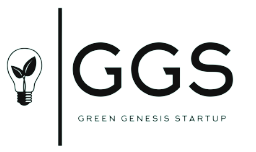
Case Study HR
Social cooperative Humana Nova is a social enterprise that operates in 3 areas: environmental, social, and economic. They employ people with disabilities and other socially excluded people who at Humana Nova create new valuesfrom discarded textile items every day, and make new, high-quality, innovative products.
Since founding Humana Nova in 2011, they have collected more than 2,000 tons of textiles.
Disposing of textile waste reduces the need for landfills, which directly affects climate change (for example, woollen clothes do not decompose, but produce methane, which contributes to global warming).
By recycling textiles, the energy needed for the production process is saved.
Less used energy results in less release of carbon dioxide, and less greenhouse emissions, and gases.
Currently they employ 44 workers, 25 of whom are disabled, and 13 from other socially marginalized groups whose challenges today's society does not have a high-quality response to. Through activities, they actively and directly help socially excluded people, and their families improve their self-confidence and quality of life, and influence not only social acceptance and professional affirmation.
Humana Nova is member of the RREUSE network, a non-profit network that brings together social enterprises active a in the field of reuse, recycling or repairs.
NEW VALUES TO OLD TEXTILE
Human Nova collect textiles that png directly, leave in one of containers or in the recycling yards of local utility companies with which they cooperate.
Usable, i.e. the wearable part of the collected clothing textiles is sold in second-hand shops (RE-USE) where its life is extended. They extract cotton from unusable textiles, which is cut into industrial rags, and re-market them for the industrial sector. They also highlight raw materials for making recycled products. The textile that remains after this separation is processed in cooperation with “Zabok Regeneration”, where it goes into the
SEWING PRODUCTS FROM RECYCLED OR NEW MATERIALS
Tailor shop, and sewing room in City of Čakovec are a factory of quality and innovative products. In the concern that 17 seamstresses from socially marginalized groups find work in them, it is also a factory of good emotions and gratitude. They sew products from old and new materials from locally procured or ecologically certified materials from other countries, always respecting fair trade rules. This is how quality products for the business sector, and clothes for web shops are created. Other products from web shops are a combination of recycled and new materials.
WORKSHOPS, and ORGANIZE ACTIONS
In organizing textile waste collection campaigns, they often cooperate with schools, associations, and local authorities that show interest and desire to make a difference. In educational institutions, kindergartens, and, if desired, in other institutions, Humana Nova holds creative workshops on textile recycling, where it is learned how to recycle textiles and be creative at the same time. In addition, Humana Nova has so far hosted a whole range of organizations and individuals who, by visiting the Cooperative, want to learn more about social entrepreneurship and the work integration of people with disabilities and other socially vulnerable people. They change people's consciousness by inviting them to participate in actions.
Humana Nova is a social enterprise that is giving young people a great example of a circular economy of reusing textiles, one of the biggest pollution problems of today. By employing the most woundable group of people, the circle is closed.
Social cooperative Humana Nova is a leading Croatian example of a social enterprise for work integration and reuse, recognized in the broader region. Through its activities, the cooperative contributes to building tolerant social relations and the balanced use of resources. Our values of Community, cooperation, reciprocity / Quality, professionalism / Leadership / Courage / Sustainability (economic, social, and environmental) / Acquisition of new skills / Pleasant, and motivating working environment are in the first place.
Key Take-Aways
social enterprise
reuse of textile
employing woundable persons
protection of environment
Email/Contact
Social enterprise Humana Nova Čakovec
textile production cooperative
Ulica žrtava fašizma 3
HR-40000 Čakove
Tel. +385 (0)40 500 765 (Production)
Mob. +385(0)99 249 6888
e-mail: [email protected]
